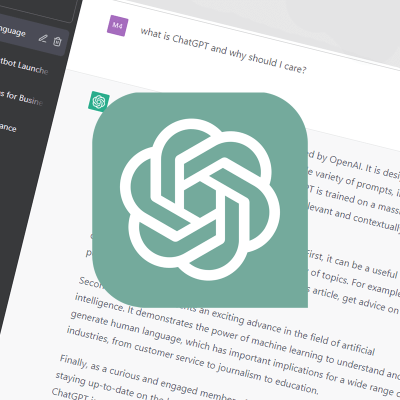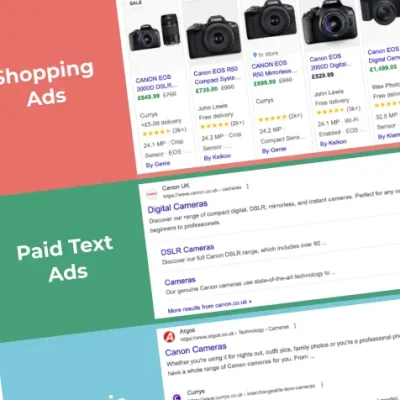There has been a lot of noise in the media over the last month over the rapid rise of AI tools such as ChatGPT, Google Bard, and Microsoft Bing’s AI enhanced search. AI is nothing new, but ChatGPT reached 1 million users in less than a week and 100 million in under two months.
What is ChatGPT?
Basically it’s a chatbot. The tool lets you provide a natural-language prompt or question, and then ChatGPT responds back in natural-sounding language. The bot will use the previous questions / prompts to assist in responding to future questions on the same thread. Surprisingly (or perhaps to avoid the SkyNet of Terminator films), the bot doesn’t use the internet for its response – it’s solely based on the huge data set it has been trained on.
You can request it to answer questions or be creative by writing a poem on a specific topic. Many are using it to write covering letters for job applications, solve maths problems with a step-by-step breakdown of the answer, and write code that goes into websites.
At Infotex we polled the team as to how they’d been using it. So far they have:
- Created a fairly complex Excel function to validate some fields.
- Brainstorm content ideas, they could then expand upon.
- Write some code to automate screenshotting a website that was protected by a username/password (don’t worry, they knew the username and password, it wasn’t hacking!)
- Extracted some key content from a long section of text, and formatted it in a specific way for reuse.
ChatGPT isn’t foolproof though, and even ChatGPT’s owners OpenAI note “It’s a mistake to be relying on it for anything important right now. We have lots of work to do on robustness and truthfulness.”
Google Bard
ChatGPT’s rapid rise has prompted Google to expedite their new AI-powered search feature ‘Bard’. This uses natural language processing and machine learning to provide more relevant and insightful information to users.
I don’t expect it to replace the traditional ‘10 blue link results’ in Google but do expect the top section of the results pages to begin including AI-generated responses and answers to questions/queries.
This could be game-changing for search in many ways:
- Distilling information from various sources into a digestible quick answer.
- Answering specific questions that haven’t been answered on an existing web page.
One downside of these generated answers would be fewer clicks on the organic results, which would be frustrating for website owners looking for traffic. As it’s Google, I’d expect to see them protecting their more commercial search terms which would currently be occupied by paid ads. It wouldn’t be too difficult to keep commercial queries (“car insurance”) and general questions (“what is Newton’s third law”) separate.
At the same time, Microsoft is also adding AI-generated answers to its Bing search results. Again, adding AI-generated responses to the search page results.
These are just a few examples of the many applications and uses of ChatGPT. Its versatility and ability to understand and generate human-like responses make it a valuable tool for a wide range of industries and use cases.



